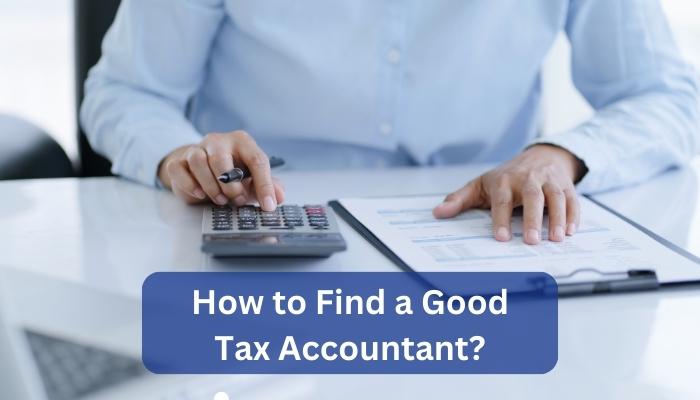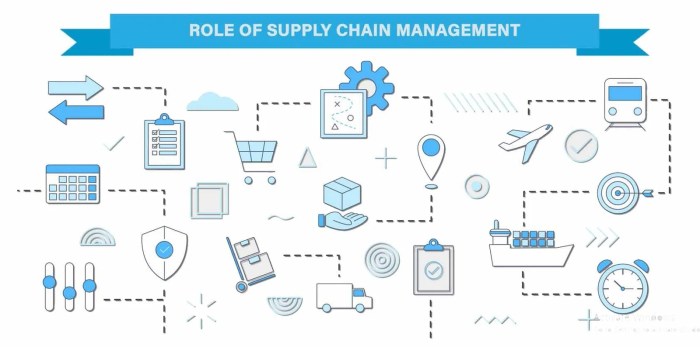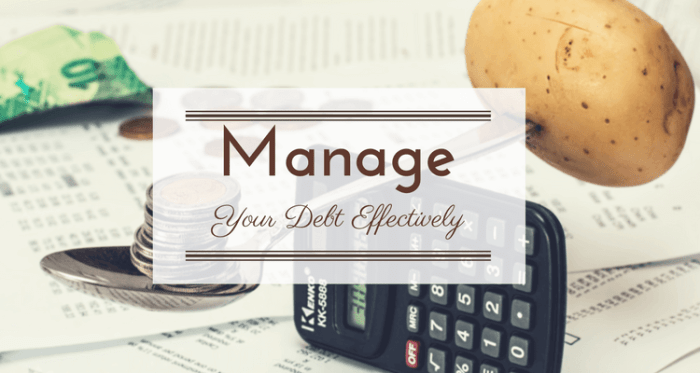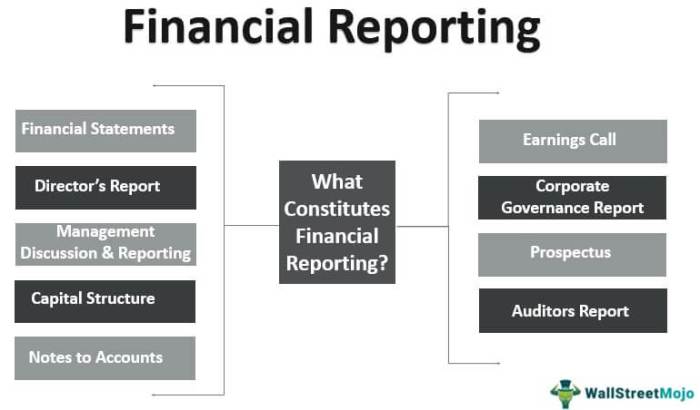How to Find the Best Tax Accountant is a crucial question for individuals and businesses alike. Navigating the complexities of tax laws can be daunting, making the selection of a qualified and reliable tax professional a critical step in ensuring financial well-being. This guide provides a comprehensive approach to finding the ideal tax accountant, covering everything from defining your needs to building a lasting professional relationship.
From understanding the nuances of different tax situations and professional certifications to evaluating pricing structures and communication styles, this guide empowers you to make an informed decision. We’ll explore various methods for finding potential accountants, including online resources and referrals, and highlight key questions to ask during consultations. Ultimately, the goal is to equip you with the knowledge and tools to find a tax accountant who not only meets your current needs but also fosters a strong, collaborative partnership for years to come.
Defining Your Needs
Finding the right tax accountant hinges on understanding your specific tax situation. Different individuals and businesses have varying needs, requiring different levels of expertise and service. Choosing the right professional ensures accurate filing, minimizes tax liabilities, and potentially saves you significant time and money.
Choosing a tax accountant involves carefully considering several factors. The complexity of your tax return, your business size (if applicable), and your specific tax needs are all crucial elements in this decision-making process. Failing to adequately assess these factors could lead to an inefficient or even ineffective tax preparation experience.
Factors to Consider When Choosing a Tax Accountant
Before beginning your search, it’s essential to clarify your requirements. This involves a self-assessment of your financial situation and tax needs. A clear understanding of your needs will streamline the selection process and help you find a tax professional who is the right fit.
Checklist of Questions to Ask Yourself
To effectively define your needs, consider these questions:
- What is the complexity of my tax return? (e.g., self-employed, rental properties, investments, international income)
- What is the size and structure of my business (if applicable)? (e.g., sole proprietorship, partnership, LLC, corporation)
- Do I need assistance with specific tax issues? (e.g., tax planning, audits, tax credits, international taxation)
- What is my budget for tax preparation services?
- What level of communication and responsiveness do I require from my tax professional?
Comparison of Tax Professionals
Different types of tax professionals offer varying levels of expertise and services. Understanding these differences is crucial in making an informed decision.
Investigate the pros of accepting How to Track Employee Work Hours for Payroll in your business strategies.
| Type of Tax Professional | Qualifications | Services Offered | Typical Fees |
|---|---|---|---|
| Certified Public Accountant (CPA) | Licensed by state boards of accountancy, rigorous education and examination requirements. | Tax preparation, tax planning, auditing, financial advisory services. | Varies widely based on complexity and experience. Generally higher than other options. |
| Enrolled Agent (EA) | Licensed by the IRS, specialized knowledge in tax law, pass a comprehensive IRS exam. | Tax preparation, representation before the IRS, tax planning. | Generally lower than CPAs, but higher than basic tax preparers. |
| Tax Preparer | May have various levels of training and experience, no specific licensing requirements in some states. | Basic tax return preparation. | Typically the lowest fees. May not offer specialized tax advice or representation before the IRS. |
Finding Potential Accountants

Finding the right tax accountant is crucial for accurate and efficient tax preparation. A thorough search process, encompassing various avenues and verification steps, will help ensure you find a professional who meets your specific needs and provides reliable service. This section will Artikel effective methods for identifying potential candidates and verifying their qualifications.
Finding qualified tax accountants requires a multi-pronged approach. Leveraging various resources increases your chances of discovering professionals who fit your requirements and offer the expertise you need.
Methods for Locating Tax Accountants
Several avenues exist for discovering qualified tax accountants in your area. Online directories, such as those provided by professional organizations, offer comprehensive listings with relevant details. Personal referrals from trusted sources, like friends, family, or financial advisors, can also be invaluable. Finally, utilizing local business directories or conducting online searches can yield further potential candidates.
Verifying Professional Certifications and Licenses, How to Find the Best Tax Accountant
It’s essential to verify the professional certifications and licenses of potential accountants before engaging their services. This ensures they possess the necessary qualifications and adhere to professional standards. A lack of proper certification or licensing could indicate a higher risk of errors or unethical practices. Always confirm their credentials through official state or national regulatory bodies.
Online Tax Preparation Services versus In-Person Accountants
Online tax preparation services and in-person accountants each offer distinct advantages and disadvantages. Online services often provide convenience and affordability, particularly for straightforward tax situations. However, they may lack the personalized attention and expertise needed for complex tax scenarios. In-person accountants offer personalized guidance and can handle intricate tax matters effectively. However, their services usually come with a higher price tag. The best choice depends on the individual’s specific tax needs and complexity.
Resources for Verifying Accountant Credentials
Several resources exist to help verify the credentials of potential accountants. State boards of accountancy maintain databases of licensed CPAs (Certified Public Accountants) and other licensed tax professionals. Professional organizations, such as the American Institute of CPAs (AICPA), offer directories of their members, providing a degree of assurance about their qualifications and adherence to professional standards. Checking online reviews and testimonials can also provide insights into the experiences of previous clients. Finally, contacting the Better Business Bureau can help uncover any complaints or negative records associated with a potential accountant.
Evaluating Potential Accountants
Choosing the right tax accountant is crucial for accurate tax filing and potential tax savings. A thorough evaluation process ensures you select a professional who meets your specific needs and provides excellent service. This involves understanding their pricing, identifying potential red flags, and directly assessing their expertise.
Understanding Pricing Structures
Tax accountants typically utilize various pricing models. Hourly rates involve paying the accountant for the time spent on your taxes. This can be beneficial for straightforward returns but may become costly for complex situations. Flat fees offer a predetermined price for specific services, providing predictability in costs, regardless of time spent. Percentage-based fees, usually a percentage of your tax refund or the tax liability, can incentivize the accountant to maximize your refund or minimize your liability, though it’s important to clarify the specifics of this calculation. Each model has its advantages and disadvantages, and the best choice depends on the complexity of your tax situation and your personal financial priorities. For example, a small business owner with intricate financial records might prefer a flat fee for a comprehensive review, while an individual with a simple return might find an hourly rate more suitable.
Identifying Red Flags
Several red flags can indicate potential problems with a tax accountant. Lack of professional certifications (like an enrolled agent or CPA designation) can raise concerns about their qualifications. Unwillingness to provide references or testimonials speaks volumes about their confidence in their services. Inconsistent or evasive answers to your questions about their experience and processes should trigger caution. A failure to clearly explain fees and payment terms before commencing work can lead to unexpected expenses. Finally, aggressive or overly optimistic promises regarding tax refunds or deductions should be viewed with skepticism; a reputable accountant will focus on accuracy and compliance rather than unrealistic claims.
Questions to Assess Expertise and Experience
Asking specific questions during a consultation is essential. Inquiring about their experience with your specific tax situation (e.g., business taxes, investment income, international tax issues) will help determine their suitability. Understanding their continuing professional education (CPE) demonstrates their commitment to staying updated on tax laws and regulations. Asking about their process for handling tax audits and their communication strategy for keeping clients informed builds confidence in their reliability and professionalism. It’s also crucial to inquire about their software and technology use for efficiency and security. Finally, understanding their approach to risk management and compliance procedures reveals their commitment to minimizing legal issues.
Questionnaire for Assessing Communication Style and Responsiveness
To evaluate a tax professional’s communication, consider using a simple questionnaire. This might include questions focusing on their preferred communication methods (email, phone, in-person meetings), their typical response time to client inquiries, and their approach to explaining complex tax concepts in an easily understandable manner. Assessing their willingness to answer follow-up questions and their overall clarity and professionalism during interactions are vital aspects of communication that directly impact client satisfaction and trust. This information, gathered systematically, helps you select an accountant who fits your communication preferences and ensures a smooth, efficient tax preparation process.
Making Your Decision and Building a Relationship
Choosing the right tax accountant is a significant decision, impacting not only your tax burden but also your financial well-being. After evaluating potential candidates, the next step involves making your final choice and cultivating a productive, long-term relationship. Effective communication and consistent organization are key to maximizing the benefits of this professional partnership.
Selecting an accountant involves more than just comparing fees; it’s about finding someone you trust and who understands your specific needs. Open and honest communication is crucial from the outset, establishing a foundation for a successful working relationship that will extend beyond just tax season.
Communicating Your Tax Needs Effectively
Clearly articulating your tax situation is essential for your accountant to provide accurate and effective service. This includes providing a comprehensive overview of your income sources, deductions, credits, and any relevant life events that might affect your tax liability. For example, if you’re self-employed, you’ll need to provide detailed records of your business income and expenses. Similarly, if you’ve experienced significant life changes like marriage, divorce, or the birth of a child, these should be communicated to ensure your tax return accurately reflects your current circumstances. Be prepared to answer questions thoroughly and provide any supporting documentation your accountant requests. Avoid withholding information, even if it seems insignificant; it could have unforeseen consequences.
Building a Strong Working Relationship
A successful relationship with your tax accountant is built on mutual trust, respect, and clear communication. Regular check-ins, even outside of tax season, can help prevent misunderstandings and ensure your accountant remains updated on any changes affecting your financial situation. Establish clear expectations regarding response times, fees, and the scope of services. Don’t hesitate to ask questions if anything is unclear. A good accountant will be patient, responsive, and willing to explain complex tax concepts in a way you understand. Consider scheduling an introductory meeting to discuss your goals and expectations before committing to their services. This allows you to assess their communication style and determine if it aligns with your preferences.
The Importance of Regular Communication
Regular communication throughout the tax year is vital for proactive tax planning and to avoid potential problems. This doesn’t necessarily mean daily contact, but rather scheduled check-ins to discuss significant financial events, changes in income, or any questions that arise. For instance, if you’re planning a major purchase or investment, consulting your accountant beforehand can help you optimize your tax strategy. Similarly, keeping your accountant informed of any significant life changes ensures your tax filings remain accurate and up-to-date. Prompt communication minimizes the risk of errors and allows for proactive adjustments to your tax planning strategy.
Essential Documents for Tax Preparation
Maintaining organized financial records is crucial for efficient tax preparation. This ensures a smoother process and helps avoid potential delays or penalties. It’s advisable to keep all relevant documents in a secure and easily accessible location. Here’s a list of essential documents to keep organized:
- W-2 forms (Wage and Tax Statement)
- 1099 forms (Miscellaneous Income)
- Receipts for business expenses (if applicable)
- Bank statements
- Investment records
- Mortgage interest statements
- Charitable donation receipts
- Proof of health insurance coverage
- Records of self-employment income and expenses
Illustrating the Importance of Professional Help

Navigating the complexities of tax law can be daunting, even for individuals with a strong financial understanding. The potential consequences of errors in tax preparation can be significant, impacting not only your finances but also your peace of mind. Engaging a qualified tax professional offers numerous benefits, ensuring compliance and potentially maximizing your tax savings.
Improper tax preparation can lead to a range of negative outcomes. For example, consider Sarah, a freelance graphic designer who attempted to file her taxes independently for the first time. Unfamiliar with the intricacies of self-employment tax deductions, she significantly underestimated her tax liability. This resulted in a substantial underpayment penalty, along with interest charges, significantly impacting her cash flow and creating unnecessary financial stress. Furthermore, inaccurate filings can lead to audits, a time-consuming and stressful process.
Benefits of Professional Tax Assistance for Complex Tax Situations
Tax professionals possess in-depth knowledge of tax codes and regulations, enabling them to effectively handle complex tax situations that often leave individuals feeling overwhelmed. These complexities include investments (such as capital gains and losses from stocks, bonds, or real estate), international income (reporting foreign bank accounts or income earned abroad), and business ownership (understanding deductions, credits, and the intricacies of various business structures like sole proprietorships, partnerships, LLCs, and S corporations). A tax professional can accurately categorize income and expenses, ensuring compliance and potentially identifying deductions that an individual might overlook. For example, a tax professional can help a business owner understand and claim deductions for home office expenses, business travel, or qualified business income (QBI) deductions.
Minimizing Tax Liability Through Professional Guidance
Tax professionals utilize their expertise to legally minimize tax liability. This is achieved through strategic planning and the proper application of tax laws and regulations. They can identify and utilize various tax credits and deductions available to individuals and businesses, such as the earned income tax credit (EITC), child tax credit, or education credits. Moreover, they can advise on tax-efficient investment strategies, helping clients structure their investments to minimize their overall tax burden. For instance, a tax professional might advise a client on the tax implications of contributing to a Roth IRA versus a traditional IRA, based on their individual financial circumstances and projected tax brackets.
Obtaining Necessary Tax Documents
Gathering all the necessary tax documents is a crucial first step in the tax preparation process. This process requires careful organization and attention to detail.
- Gathering Income Documents: This involves collecting all forms reflecting income received throughout the year, including W-2s (Wage and Tax Statement) from employers, 1099s (various types, reporting income from freelance work, dividends, interest, etc.), and any other income statements. It’s essential to keep these documents organized and readily accessible.
- Collecting Expense Documents: For individuals and businesses, collecting documentation for deductible expenses is critical. This includes receipts for business-related expenses, charitable donations, medical expenses, and mortgage interest. It is advisable to maintain a system for organizing these documents throughout the year, such as a dedicated folder or a digital filing system.
- Reviewing Prior Year’s Tax Returns: Reviewing previous tax returns can be helpful in identifying any recurring deductions or credits, and it provides a baseline for comparison. This helps ensure consistency and prevents overlooking important details.
- Accessing Online Accounts: Many financial institutions and employers offer online access to tax documents. Utilizing these online portals can simplify the document gathering process and ensure accuracy.
- Contacting Relevant Parties: If any documents are missing or unclear, it’s crucial to contact the relevant parties, such as employers or financial institutions, promptly to request the necessary information.
Outcome Summary
Finding the right tax accountant is an investment in your financial future. By carefully considering your needs, researching potential candidates, and asking insightful questions, you can confidently select a professional who will expertly manage your taxes, minimize your liability, and provide valuable financial guidance. Remember, a strong working relationship built on open communication is key to a successful and stress-free tax experience. Take the time to find the best fit, and reap the rewards of sound financial planning and peace of mind.
FAQ Compilation: How To Find The Best Tax Accountant
What is the difference between a CPA and an Enrolled Agent?
CPAs (Certified Public Accountants) are licensed by state boards and have passed a rigorous exam. Enrolled Agents (EAs) are federally licensed tax professionals who specialize in tax representation. Both can prepare taxes, but EAs have specific expertise in representing taxpayers before the IRS.
How much should I expect to pay a tax accountant?
Pricing varies greatly depending on the complexity of your return and the accountant’s experience. Expect hourly rates, flat fees, or percentage-based fees. Get a clear quote upfront.
What if I disagree with my accountant’s assessment?
Open communication is key. Discuss your concerns directly. If the issue remains unresolved, consider seeking a second opinion from another qualified professional.
How often should I meet with my tax accountant?
Ideally, you should meet with your tax accountant at least once a year, before tax season, to discuss your financial situation and plan your tax strategy. More frequent meetings might be beneficial for complex tax situations.









